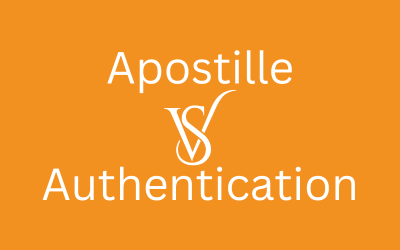Now that we’re at the mid-way point of 2025, it’s an ideal time to revisit the compliance deadlines you need to keep an eye on and assess your business to determine if you should make some changes to fuel its success. Here’s a checklist to help you stay on track with your business’s responsibilities and spark decision-making that could foster growth and expansion.
1. If You’re Behind on Your Taxes, Catch Up
If you have missed any reporting or payment deadlines, time is of the essence to avoid interest and penalties.
Have you…
- Filed your 2024 annual return (or filed for an extension)? Note that any underpaid taxes for 2024 were due by April 15, 2025, even for taxpayers granted the October 15 extended due date.
- Paid your first and second quarter estimated income tax payments (if applicable) for tax year 2025?
- Collected, reported, and remitted sales tax (if applicable)
- Kept up with your payroll taxes and other employment-related taxes and fees? – e.g., accurately withholding taxes and other deductions from employees’ pay and making deposits to the appropriate tax agencies, making workers’ compensation insurance, FUTA (federal unemployment tax), and SUTA (state unemployment tax) payments
2. Don’t Wait to File for S Corporation Election
Newly formed LLCs and C Corporations have 2 months and 15 days from the effective date of their formation to file Form 2553, Election by a Small Business Corporation, to elect S Corporation status for their first tax year. So, if an LLC was formed on May 1, 2025, it has until July 15, 2025, to elect to be taxed as an S Corporation for tax year 2025. If they miss their election deadline, they will default to the standard tax treatment (either Sole Proprietorship, Partnership, or C Corporation) for 2025, and the election will be effective for the 2026 tax year.
If your existing LLC or C Corporation uses a calendar tax year and missed the March 15, 2025 deadline to file Form 2553 to elect S Corporation status, you will be unable to be taxed as an S Corporation for the 2025 tax year. While the deadline for filing for the S Corporation election for the 2026 tax year is March 15, 2026, you can get a jump on things by filing Form 2553 any time before the end of this year to secure the election for 2026. Existing business entities that don’t go by a calendar tax year have 2 months and 15 days from the beginning of the business’s tax year to file Form 2553 for the present tax year. For example, if a C Corporation uses a fiscal year that begins on July 1, 2025, it will have until September 15, 2025, to file for the S Corporation election for the fiscal year that runs from July 1, 2025, through June 30, 2026.
The IRS grants late S Corporation election relief to entities with a reasonable cause for filing after their deadline.
3. File Your Annual Report If You Haven’t Yet
Many states require LLCs and Corporations to file annual reports. The deadlines vary by state, so pay attention to when yours is due. If you miss your deadline, you might face fines or other penalties. Filing your report late is better than not filing it at all…ongoing failure to submit your annual report can eventually lead to falling out of good standing with the state and even administrative dissolution of your business.
4. Hold Your Annual Meeting and Record Minutes
If your LLC operating agreement or corporate bylaws require your business to hold an annual meeting and you haven’t yet, make sure you fit it in before year end. LLC member meetings and corporate shareholder meetings are important for maintaining compliance. Also, prepare to record detailed meeting minutes and keep them with your other corporate documents.
Similarly, if your company has a board of directors, it’s critical to follow your governance document’s instructions for holding board meetings.
5. Inform the State of Major Changes to Your Entity
States require that business entities inform them when significant changes occur so they have the most up-to-date information on record. Companies must file Articles of Amendment (or comparable document) when changes occur to information previously filed. Note that states’ rules vary for which changes must be reported.
Examples:
- Business name
- Business address
- Registered agent
- Director or member information
- Number of authorized shares
- The company’s business activities
And if you are no longer conducting business, realize that merely ceasing operations doesn’t leave you off the hook from your compliance requirements and tax obligations. Business owners must follow all state, local, and federal rules for winding down and officially closing their entity, including filing Articles of Dissolution in the business’s home state and withdrawal filings in states where the entity is foreign qualified to conduct business.
6. Evaluate if Your Entity Type Is the Best Option
If you started your business as a Sole proprietorship or a Partnership, you may be considering incorporating your business or forming an LLC to protect your personal assets from your company’s debts. Or perhaps you’re thinking about converting your LLC to a C Corporation (or vice versa). Become familiar with the pros and cons of various legal structures, their tax and legal implications, and what’s involved to stay compliant at the federal, state, and local levels. Discuss your options with a professional advisor to make an informed decision about which entity type will best serve your needs and goals and whether now is the right time to convert from your existing business structure to another. The entity conversion process varies by state and the type of business structures involved.
Which Business Structure is Right for You?
Use our free Business Structure Wizard to help you home in on the best option.
7. Foreign Qualify If Doing Business in Other States
Most states require an entity formed in another state to register as a foreign entity in their state if the company will conduct business there. The process of registering to do business in another state is called foreign qualification. In general, you need to apply for foreign qualification if your business will:
- Have a physical presence, such as an office space, a warehouse, or a retail store in the state
- Conduct in-person meetings with clients or customers in the state
- Have employees living/working in the state
- Reach a certain sales or income threshold (economic nexus) in the state
Foreign qualification requires submitting a Certificate of Authority application (state forms vary, so it may be called something else) and paying the appropriate fees. After the company is approved as a foreign entity, the LLC or Corporation must appoint a registered agent in the state to handle service of process and other official documents and notifications on behalf of the business.
8. Prepare for Payroll If You Are Hiring Employees
If you’ve been doing it all on your own and now need some additional hands on deck to help grow your business, hiring employees can free up your time to focus on the bigger picture. Adding employees comes with added responsibilities—you must follow specific employment and payroll regulations required by the federal, state, and local governments.
Some of the typical must-haves for hiring staff include:
- Employer Identification Number (EIN)
- State payroll tax registration
- Workers’ compensation insurance policy
- Employee’s information (name, address, Social Security number, etc.)
- Employee’s federal tax documents (Form W-4 for withholding federal income and Form I-9 to verify that the employee is authorized to work in the U.S.)
- Employee’s state tax documents (for example, some states use their own W-4 forms for employee state income tax withholdings)
- Health insurance and retirement plan documentation (if applicable) to verify the desired employee contributions to the plans
Note that many businesses find using independent contractors, like freelancers, to be an attractive option because they avoid dealing with payroll deductions, employment-related taxes, and employee benefits. However, whether someone can be classified as an independent contractor depends on various aspects of the relationship between the worker and the business for which they are performing services. The IRS has rules for classifying workers as employees or independent contractors, which are based on behavioral control, financial control, and the nature of the relationship between the worker and the business. Essentially, for a worker to be classified as an independent contractor vs. an employee, the company should not be directing and controlling the work the person does, only the result of the work. Nor should they control the financial aspects of the workers’ job (e.g., supplying equipment or reimbursing expenses). It’s helpful to have an independent contractor or work for hire agreement with someone to be classified as an independent contractor to describe how you will interact with each other, their responsibilities and yours, how they will be paid, and other details to document that they are being treated in a way consistent with the independent contractor classification.
Some states have stricter rules than those at the federal level. For instance, California’s AB5 law has made it more complicated to classify workers as independent contractors. California’s ABC test expands on the IRS’s rules. It declares that for a worker to be treated as an independent contractor, they must perform services that are outside of the usual course of the hiring entity’s business. So, if you own a marketing and advertising firm in the state, you may need to put your graphic designer on payroll vs. using their services as an independent contractor. The law also states that a worker can only be classified as an independent contractor if they are “customarily and currently engaged in an independently established trade, occupation, or business” of the same nature as the work performed for the hiring entity. In other words, the worker must be a self-employed business owner who provides the services they perform for your company to other clients as well.
We’re Here to Help You Stay on Track and Succeed
CorpNet’s team of business filings specialists will help you:
- Keep up with your essential compliance deadlines year-round
- Register for sale tax permits
- Register for state payroll taxes
- Foreign qualify your business in another state
- Convert your business entity
- Elect S Corporation tax treatment
Save time, money, and your patience—let us handle the details!





